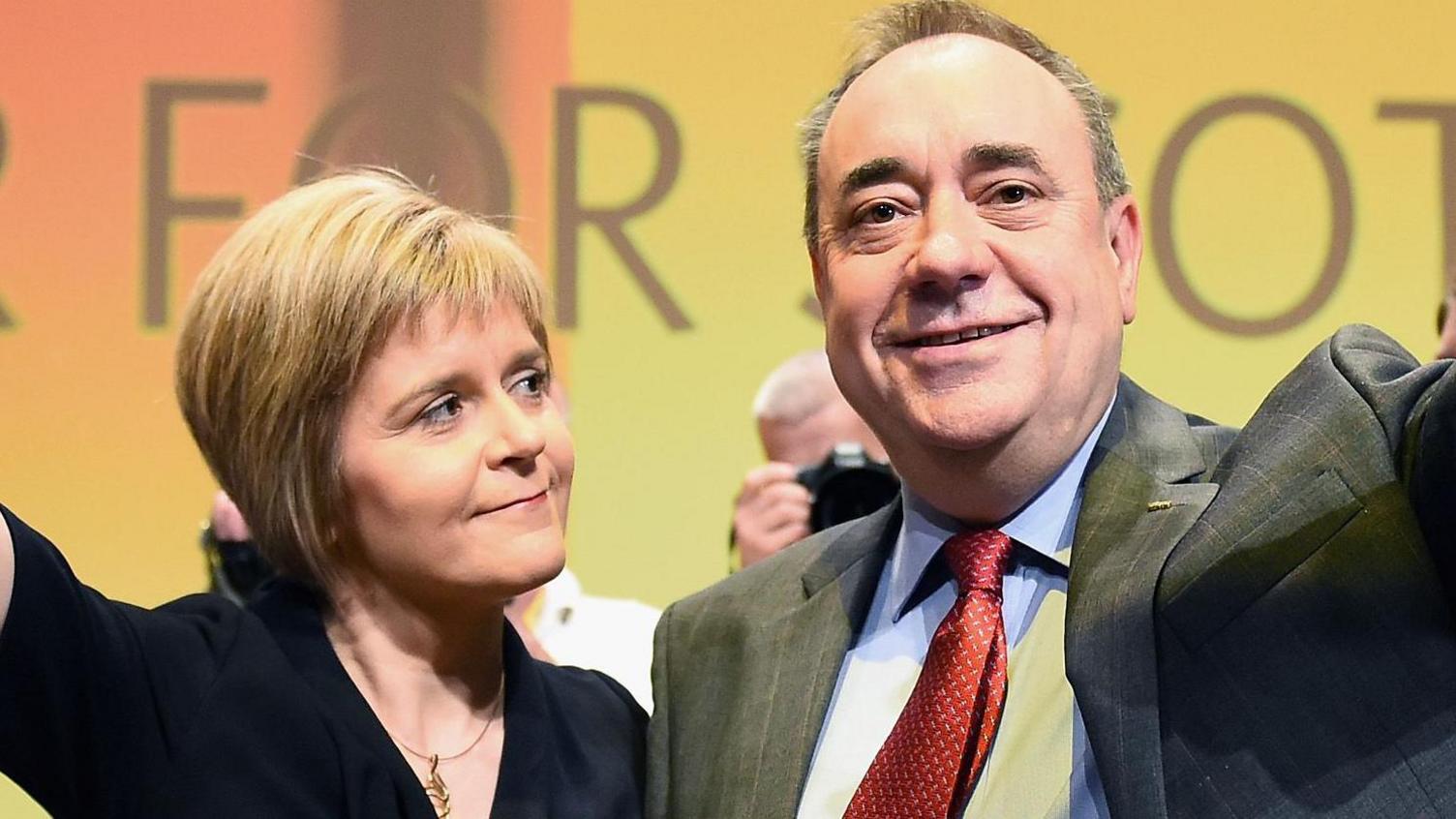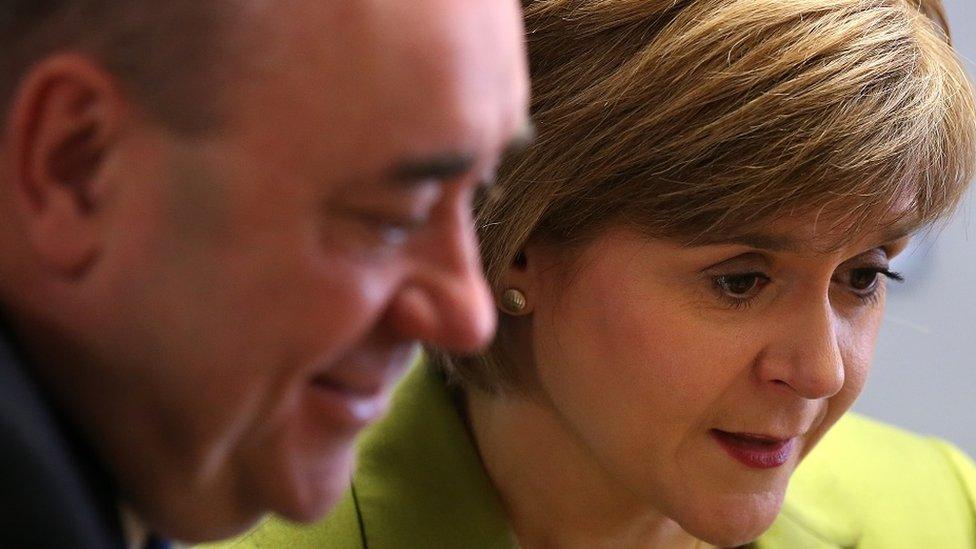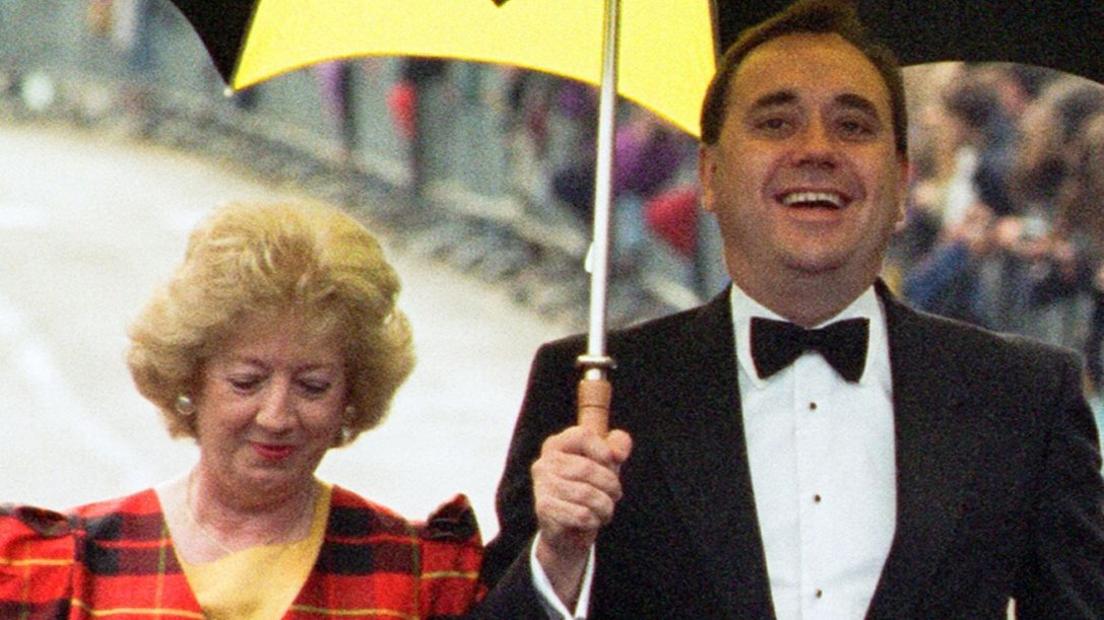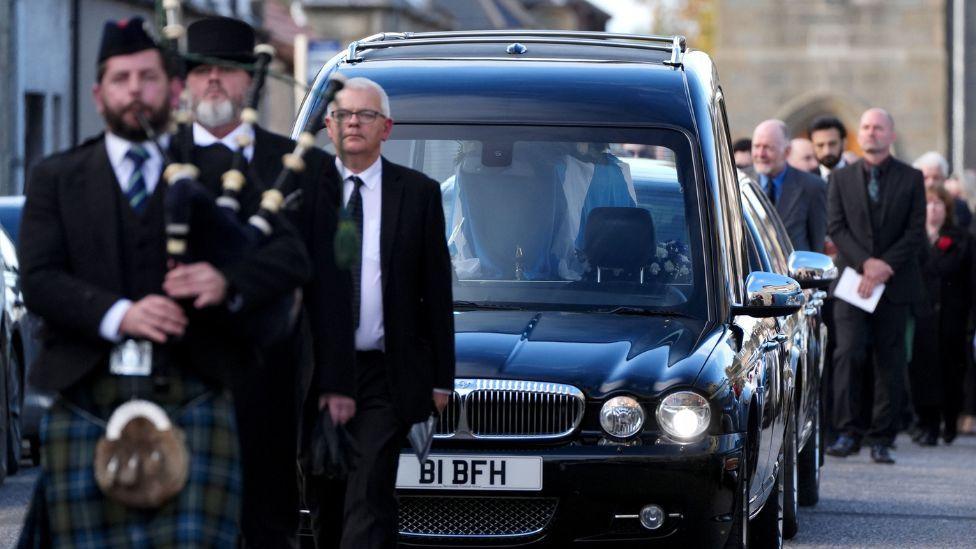Sturgeon stays away from Salmond condolences debate

Sturgeon and Salmond dominated Scottish politics for more than a decade
- Published
Nicola Sturgeon has not attended a debate in Holyrood held for MSPs to give condolences for Alex Salmond.
The former first minister was Salmond's successor, close political ally and long-time friend until their fallout over her government’s mishandling of harassment complaints against him.
Asked if she would attend the motion of condolences, she said she could not "pretend that the events of the past few years did not happen".
First Minister John Swinney told the chamber Salmond had "left an indelible mark on Scotland".
Salmond died aged 69 while attending a conference in North Macedonia earlier this month.
At the time, Sturgeon paid tribute saying the two had "formed one of the most successful partnerships in UK politics" for more than a decade.
Ahead of the motion of condolence, she said she had been "wrestling" with how to pay appropriate respect in a way that felt right to her but did not "distract from the grief of Alex’ family".
She said: "Weighing all this up, I have concluded that it is best for me to remember Alex privately."
Instead she said she would watch the motion of condolence online.
"I appreciate that others in my position might make different decisions, but sometimes doing what feels most right is the best any of us can do,” she added.
Earlier in the chamber the Scottish party leaders shared their memories of Salmond and passed on their condolences to his family and friends.
He was laid to rest near his home in Aberdeenshire on Tuesday.
Presiding Officer Alison Johnstone was the first to deliver a tribute, saying Mr Salmond's "contribution to the development and life of this Parliament is an integral part of our history".
First Minister John Swinney spoke next, with his motion recognising "the substantial and significant contribution" Salmond made.
Salmond and Sturgeon on breakdown of political partnership
Salmond and Sturgeon were a successful political duo for more than 10 years before their row began in 2018 - when allegations of sexual harassment were made against him.
The complaints, which he denied, were made after Sturgeon asked for new government policies on sexual harassment to be put in place in the wake of the #MeToo movement. Salmond believed the policy was aimed at him.
The Scottish government eventually admitted it had acted unlawfully and had to pay Salmond's legal fees of more than £500,000.
Salmond accused officials close to Sturgeon - including her husband Peter Murrell, the SNP's former chief executive - of plotting against him. They all denied these claims.
Then, in January 2019, Mr Salmond was arrested and charged with multiple counts of sexual assault, including attempted rape.
The following year he was cleared of all 13 charges after two weeks of evidence during a trial at the High Court in Edinburgh.
The women who made the allegations against him - which dated back to his time as first minister - had included an SNP politician, a party worker and several current and former Scottish government civil servants and officials.
During his evidence to the court, Salmond said the claims made about his alleged conduct were "deliberate fabrications for a political purpose" or "exaggerations".
In his closing speech to the jury, his lawyer said the former first minister "could certainly have been a better man" but had not committed any crimes.
After the trial, an inquiry looked at whether Sturgeon breached the ministerial code, examining whether she had interfered with the civil service investigation into the Salmond allegations.
James Hamilton's report cleared her of breaching the ministerial code, but said it was up to parliament to decide whether she had misled them.
Related topics
- Published26 February 2021

- Published30 October 2024

- Published29 October 2024
